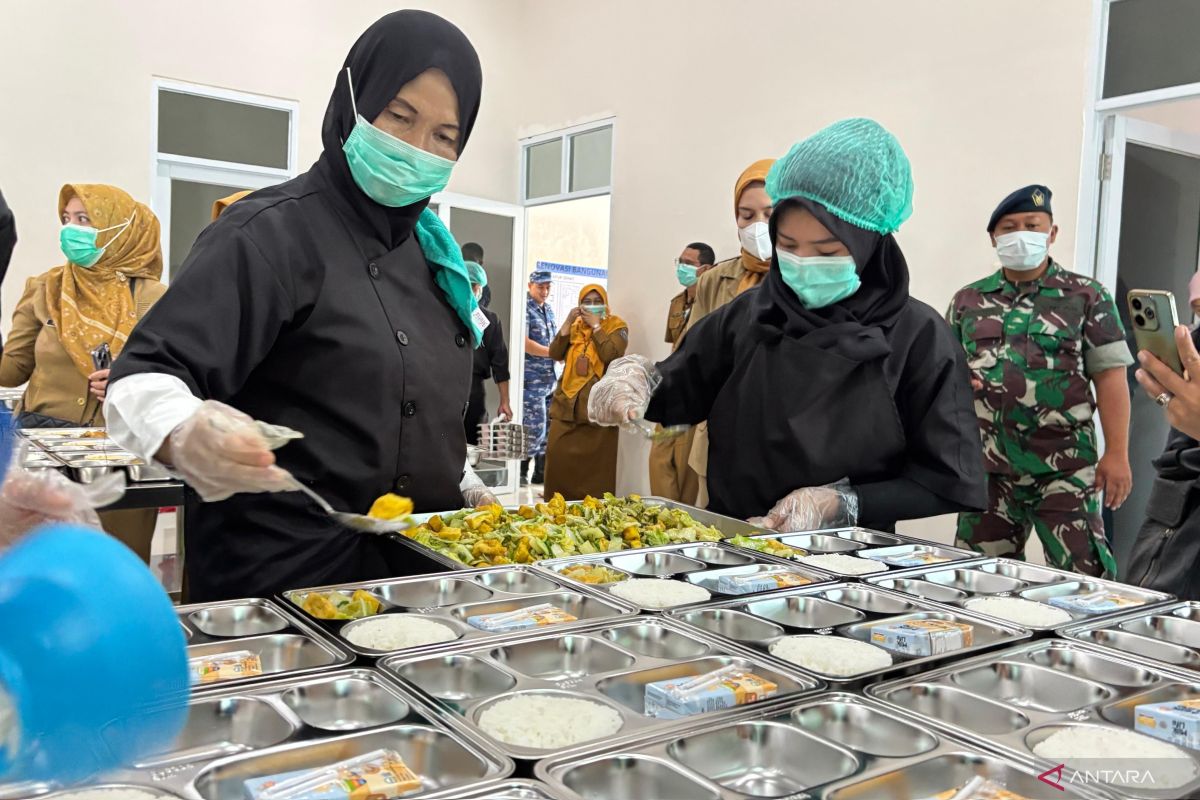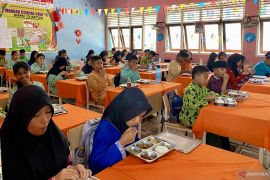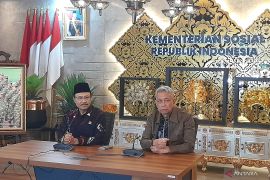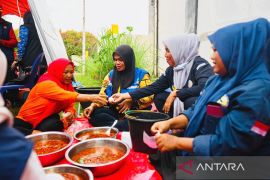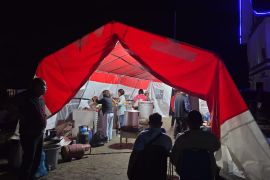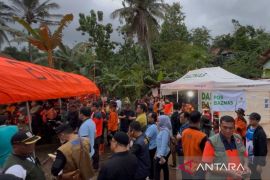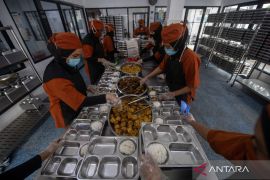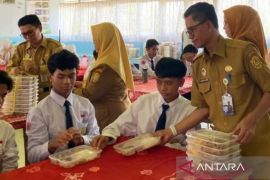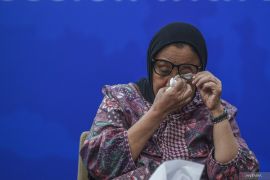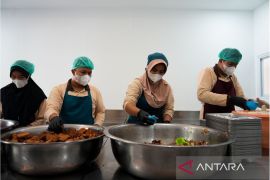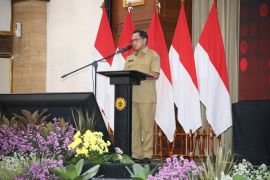In the end, the MBG program is not merely about improving the nutrition of future generations but also reviving the local economy and improving the welfare of the community.Jakarta (ANTARA) - The primary aim of the Free Nutritious Meals (MBG) program is to nurture a brilliant generation by ensuring students receive balanced nutrition.
Initiated by President Prabowo Subianto, this program is expected to boost the local economy as well.
The MBG program commenced simultaneously in 26 provinces on January 6, 2025, focusing on four objectives: preparing superior resources, lowering stunting rates, alleviating poverty, and fostering community economic growth to achieve the vision of Golden Indonesia 2045.
The beneficiaries of this program comprise toddlers, schoolchildren, including those in Islamic boarding schools, pregnant women, and breastfeeding mothers.
Funds budgeted by the government for this program reach Rp71 trillion (US$4.2 billion).
With such significant funding, the local economy is expected to improve with the establishment of public kitchens managed by local micro, small, and medium enterprises (MSMEs) or cooperatives where the MBG program is implemented.
In addition to logistics preparation and food distribution, food waste generated from the program also presents opportunities for a circular economy through composting and maggot production.
Local economic generator
With a budget of Rp71 trillion, the MBG program is expected to boost the regional economy by engaging local residents in providing local raw materials for each public kitchen. By January 2025, at least 937 public kitchens will be operating in 26 provinces.
These public kitchens are expected to procure food ingredients, such as fruit, vegetables, eggs, milk, meat, fish, and rice, from local merchants.
Staff at the public kitchen are also primarily sourced from the local community. The public kitchen can also utilize existing kitchens, such as MSME kitchens or shared kitchens owned by the community.
Utilizing this kitchen can save budget and reduce distribution costs, allowing for a more diverse menu.
Beyond money circulation in regions, the MBG program also brings a multiplier effect in the form of labor absorption.
The increasing demand for food orders will likely necessitate the hiring of additional cooks, food delivery couriers, and food packaging assistants.
Researcher from the Center of Reform on Economic (CORE) Indonesia, Eliza Mardian, stated that MBG can generate a multiplier effect for local communities by enhancing the welfare of producers and increasing job absorption.
Job absorption can extend to housewives to work in the public kitchen and also involve surrounding community members to assist in the kitchen or help distribute food from the kitchen to schools.
"When MSMEs are flooded with orders, there is an increase in labor. This phenomenon creates a multiplier effect. Apart from enhancing nutrition, it also improves the welfare of local producers and the absorption of labor," Mardian remarked.
MSMEs require institutional support to streamline order fulfillment, logistics distribution, and payment systems. Hence, cooperatives play a crucial role in this initiative.
The role of cooperatives
Minister of Cooperatives Budi Arie Setiadi highlighted the role of cooperatives in MBG in connecting local farmers, fishermen, and livestock farmers with raw material suppliers for the program.
The ministry recorded that 1,336 cooperatives are currently engaged in the MBG program, and the figure is expected to continue growing.
Cooperatives can also assist in standardizing kitchen operations to comply with established regulations.
However, the government must also provide certainty and access for farmers, livestock farmers, and fishermen to be able to join as kitchen vendors.
Non-cooperative farmers, fishermen, and livestock farmers should also be considered to sell their produce to the cooperatives.
This collaboration is essential for the program's success and for driving the community’s economy.
Tender supervision
Given the substantial budget allocated for this program, competitive tendering is undeniable.
Supervision from various parties, including the local community, security agencies, government, and other institutions, is necessary for the successful implementation of the program.
The Business Competition Supervisory Commission (KPPU) has agreed to supervise the tendering process for the MBG program in order to maintain healthy business competition.
The MBG program will fall under the food security sector supervision encompassing logistics, distribution, and involved MSMEs.
In addition, the KPPU will monitor the auction mechanism, tenders, and prices offered by vendors.
These supervisions must be conducted to prevent monopolistic practices within MBG while ensuring healthy business competition benefits the local communities economically.
Meanwhile, the spokesperson of the Presidential Communication Office (PCO), Adita Irawati, stated that the government would prepare a structured and systematic evaluation to assess the MBG program's impact on beneficiaries.
The evaluation will be conducted by including groups that had earlier received the meals during the trial period before the program was officially started.
In the end, the MBG program is not merely about improving the nutrition of future generations but also reviving the local economy and improving the welfare of the community.
People also become more productive as new job opportunities arise, especially for those who were earlier unemployed.
Related news: Increase in free meals budget to support economy: official
Related news: Ready to partner with MSMEs, canteens for meals program: BGN
Translator: Maria Cicilia Galuh, Resinta Sulistiyandari
Editor: Arie Novarina
Copyright © ANTARA 2025
